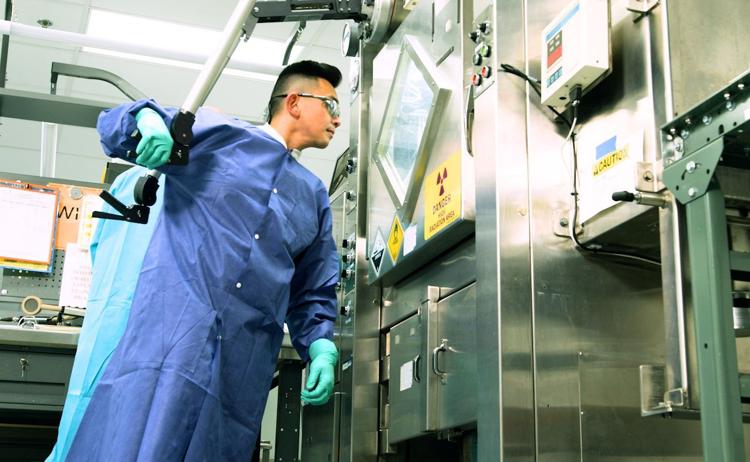NorthStar pivots, to begin adding workers

8 Jul 2024
BELOIT — NorthStar Medical Radioisotopes LLC is ready to add to its workforce again after a challenging year.
The company began in 2006 to create radioisotopes used in detection of cancer and it broke ground on its Beloit facility in the Gateway Business Park in 2014.
However, this past October, the company announced that it was ending production of the molybdenum-99 (Mo-99) radioisotope because of market conditions, cutting nearly 100 jobs from the company’s total workforce of 350 in Madison and Beloit. Most of its foreign competitors in the Mo-99 market were subsidized and the governmental reimbursement rates were capped at levels that made it difficult to make money.
Now, the company is looking to the future and is turning to new products that can be marketed to the nuclear medicine field. And it has completed a construction project at the Beloit facility.
In June, NorthStar finished building cleanrooms, which include shielded enclosures, a separate area for weighing and dissolving components, and a controlled entry space similar to an airlock to make sure contaminants don’t ruin their processes both for their own production and for their contract clients.
Dr. Frank Scholz, Northstar President and CEO, said the company will begin adding workers once production begins for the actinium-225 (Ac-225) radioisotope.
“Unlike with (Mo-99) where there were many hurdles, we have all the advantages with Cu-67 and Ac-225,” Scholz said. “Our technology is superior. Our production routes are better. We aren’t facing subsidized competition. The reimbursement rates are better. As this market grows, we will be positioned to grow with it.”
The company, whose biggest investor is Hendricks Holding Co., received Food & Drug Administration approval for its radioisotope production process in 2018, becoming the first United States company able to produce Mo-99 in 30 years.
Even as it was exiting the Mo-99 business, NorthStar had charted a path forward.
While perfecting the process to create Mo-99, Northstar began using the same process to create the radioisotopes copper-67 (Cu-67) and actinium-225 (Ac-225).
“If you look at the market for (Mo-99), it was perhaps about $250 million,” said Dr. Frank Scholz, NorthStar president and CEO. “There are several companies in the process of creating treatments using radioisotopes. Those are likely to begin getting (Food & Drug Administration) approval in 2030. That will create a market that is in the multi-billions.”
Using radioisotopes to treat cancer is an idea that is finally gaining momentum. It was first developed in the 1950s, but didn’t gain traction because of the difficulty of producing radioisotopes at scale. Modern science and production methods using accelerators instead of reactors are making it more cost efficient to make a variety of radioisotopes. NorthStar put two 24-ton particle accelerators in Beloit in 2021.
“We needed to be able to treat thousands of people,” Scholz said. “We were losing nuclear chemists, now investment capital is coming back and the talent is flowing in.”
The vast majority of cancer patients still are treated with radiation and chemotherapy. Radioisotope treatments are being developed because they can be targeted to deliver cancer-killing radiation directly to tumor cells, which has far fewer short- and long-term side effects.
In 2021, NorthStar struck a deal with Clarity Pharmaceuticals to supply Cu-67 for the company’s Targeted Copper Theranostics programs. The company began producing Cu-67 late in June 2023.
Also in the summer of 2023, NorthStar struck deals to supply Ac-225 to NucleusRadioPharma, Curadh MTR and Bayer and announced a deal in January of this year with Alpha-9 Oncology Inc.
The drugs for all of those companies are in clinical trials. Scholz said the company will begin producing Ac-225 in Beloit in the fourth quarter of this year.
The company’s process is so respected that beginning this month it will be a contract nuclear medicine maker for other pharmaceutical companies. Essentially, other pharmaceutical firms will ship radioisotopes and the molecule that will bind it to the cancers to Beloit where workers will essentially join them together, place the treatments into vials and ship them to treatment centers.
More Topics


Tunes fill Beloit area on Make Music Day
Jun 23 2024


